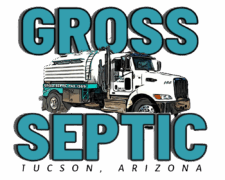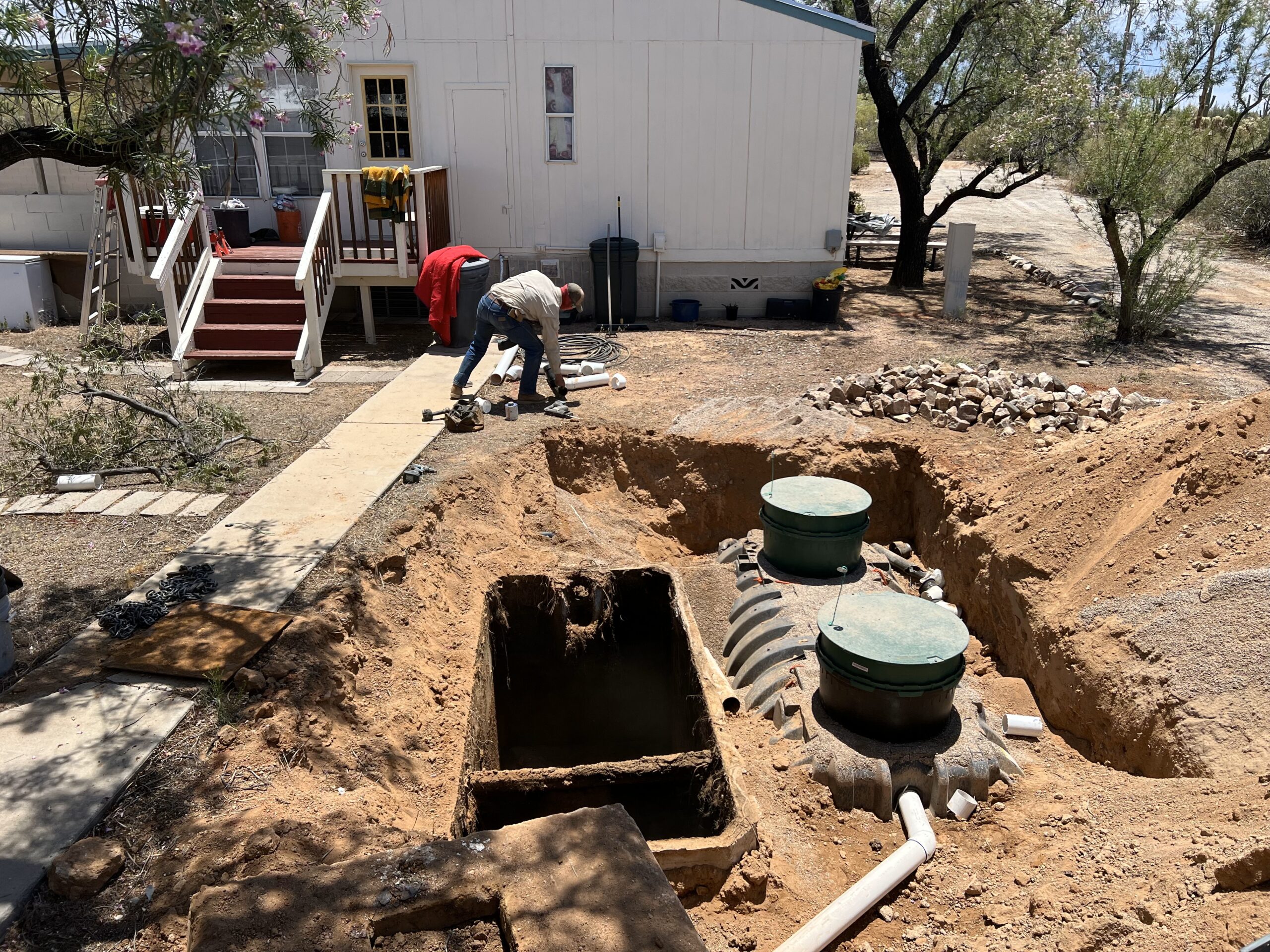If your septic system isn’t working properly, you’re not alone. Thousands of homeowners across Tucson and the surrounding areas face septic problems each year—many of which start small but quickly turn into expensive emergencies. Whether you’ve noticed slow drains, foul smells, or even wastewater backing up, the first step to fixing the issue is understanding what’s causing it.
At Gross Septic Pumping, we’ve helped Arizona families identify and resolve septic issues for decades. Below are the most common reasons septic systems stop working, along with what you can do about it.
You Haven’t Pumped the Tank in Years
This is hands down the most common issue. Septic tanks are designed to collect solids over time. If the tank isn’t pumped every 3 to 5 years, those solids build up and eventually flow into the leach field, causing clogs, backups, and system overload.
How to prevent it:
Schedule regular septic pumping based on your household size and water usage. If it’s been more than five years since your last service, it’s time to call.
Leach Field Saturation
The leach field (or drain field) is responsible for dispersing treated wastewater into the soil. When it becomes saturated—due to excessive water use, poor soil absorption, or sludge overflow—it stops working. Wastewater backs up, creating soft spots, sewage smells, or even surface pooling.
What causes it:
- High water use in a short period
- Compacted or clay-heavy soil (common in Arizona)
- Roots growing into the lines
- Solids clogging the field from lack of tank pumping
How to prevent it:
Avoid overloading your system with back-to-back laundry or showers. Keep heavy vehicles off the field, and pump the tank on schedule.
Faulty or Burned-Out Septic Pump
If your system uses a septic pump to move wastewater uphill or to the leach field, and that pump fails, the whole system stops working. You might hear alarms, see higher water levels in the tank, or experience backups indoors.
What causes it:
- Age and wear (pumps typically last 7–10 years)
- Electrical issues
- Float switch failure
- Clogs or impeller damage
How to prevent it:
Have your pump inspected during regular service visits. If your system has an alarm, don’t ignore it—call for help immediately.
Roots Invading the System
Tree and shrub roots are constantly looking for moisture. Unfortunately, your septic system offers an irresistible water source. Over time, roots can crack tanks, clog pipes, and destroy leach field lines.
How to spot it:
- Sudden backups
- Unexpected odors
- Collapsed or broken lines upon inspection
How to prevent it:
Keep large plants and trees away from your tank and field. If roots are already a problem, professional removal and root barriers may be needed.
Flushing the Wrong Things
What goes down your toilet and drains directly impacts your septic system. Flushing wipes, grease, feminine products, paper towels, or harsh chemicals can clog your tank or kill off the beneficial bacteria needed to break down waste.
Signs it’s an issue:
- Frequent clogs or backups
- Tank fills up too quickly
- Poor drainage in fixtures
How to prevent it:
Only flush toilet paper and human waste. Pour grease into containers and dispose of it in the trash—not down the sink.
System Installed Incorrectly
Unfortunately, not every septic system is installed correctly the first time. Poor layout, undersized tanks, shallow trenches, and inadequate venting are all common problems—especially in older systems or quick builds.
How to tell:
If your system fails repeatedly or struggles even after repairs, installation might be the issue.
How to fix it:
Professional evaluation is needed. At Gross Septic Pumping, we’ll assess your entire system and let you know if a redesign or full replacement is the smartest move.
Lack of Maintenance
Aside from pumping, your septic system needs occasional inspections to catch developing issues early—before they lead to full failure. A crack in a tank lid, a failing baffle, or a slow drainage field might go unnoticed until it’s too late.
How to prevent it:
Have your septic system professionally inspected every 1–2 years. Think of it like a health check for your home’s plumbing infrastructure.
Tucson Homeowners Trust Gross Septic Pumping
If your septic system isn’t working, you don’t have time for sales gimmicks or vague answers. At Gross Septic Pumping, we give you straight answers, fast service, and reliable repairs with no pressure.
We specialize in:
- Septic tank pumping
- Leach field installation
- Septic system inspections
- Septic pump repair
- Riser and lid replacements
- Real estate septic certifications
We serve homeowners across Tucson, Sahuarita, Marana, Vail, and surrounding communities—7 days a week.
For more support, give us a call and schedule an inspection. We’ll figure out why your septic system isn’t working and what needs to be done to fix it—for good.
Call Gross Septic Pumping today for trusted service and real solutions.

